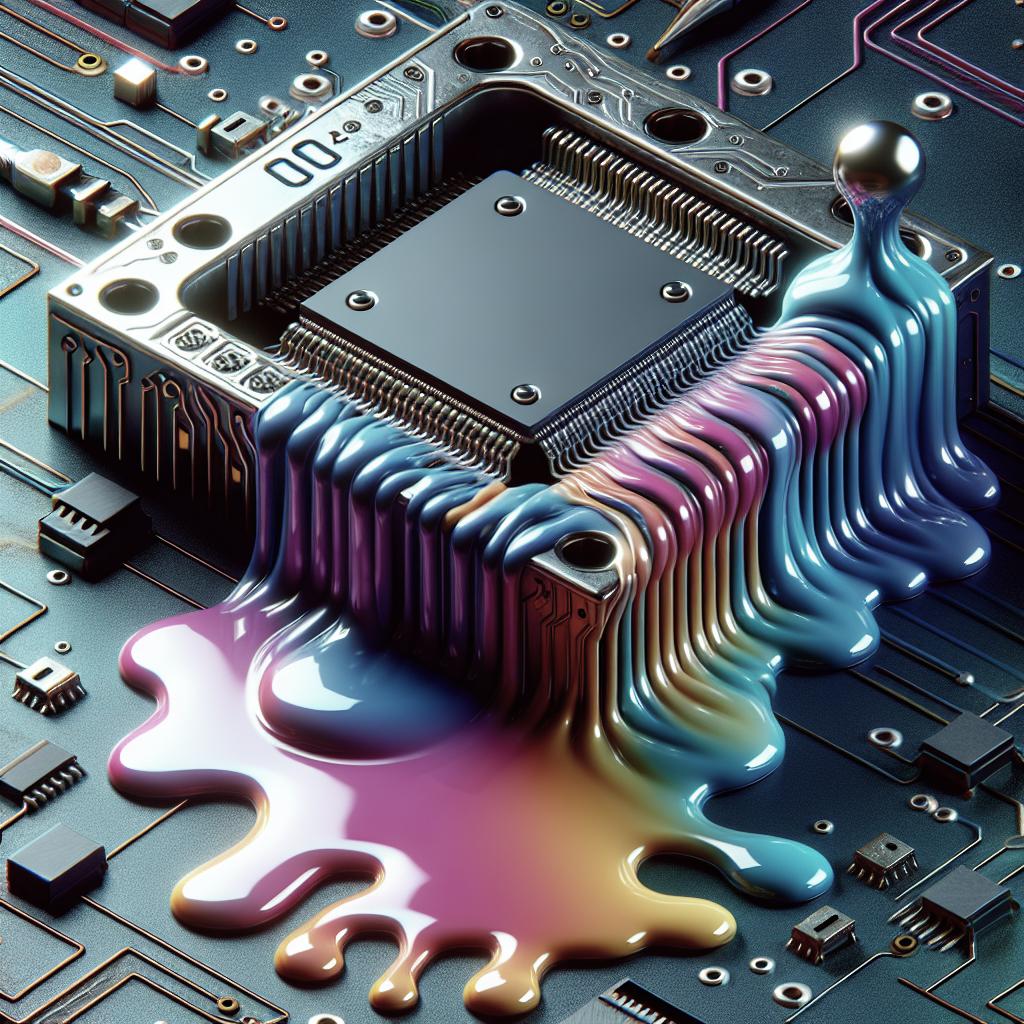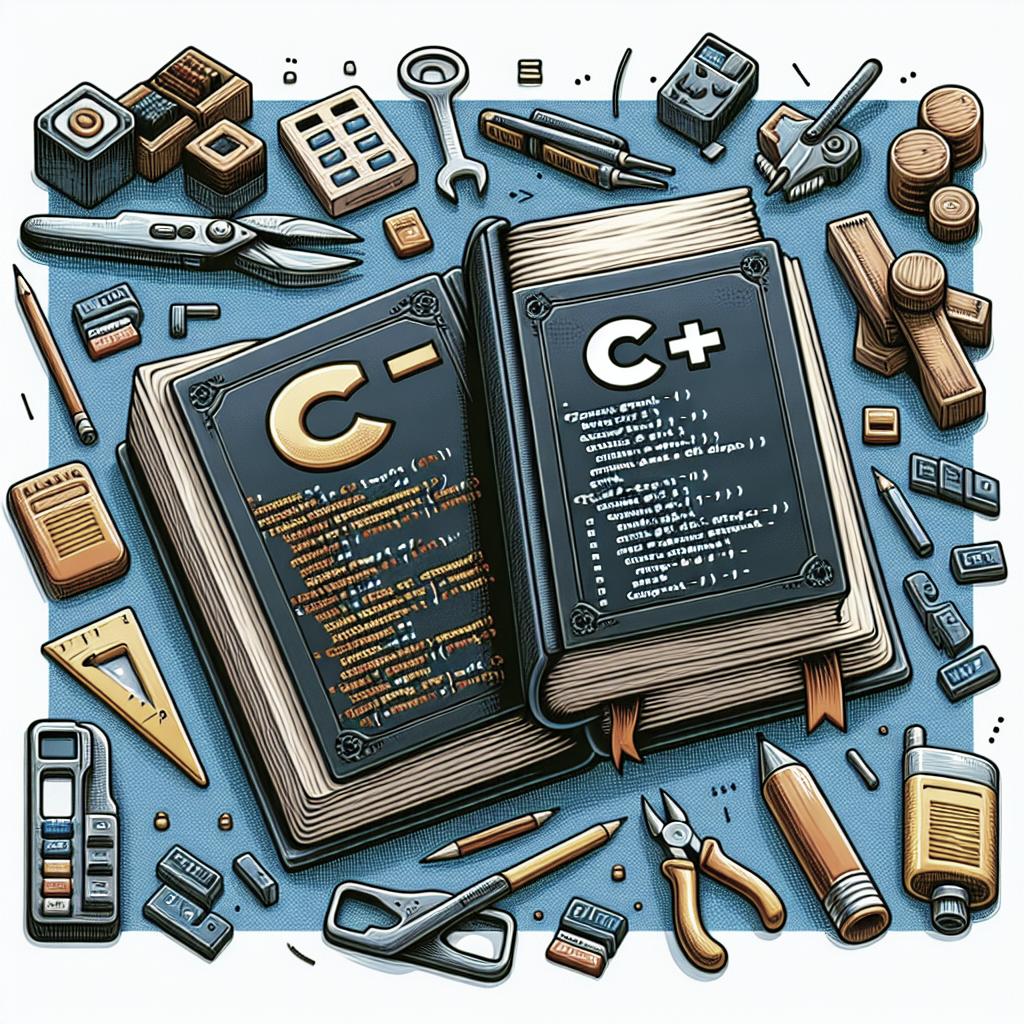html
Understanding Memory Leaks and Their Implications
In the realm of programming, memory management is a critical component that developers must handle judiciously to ensure optimal performance of their applications. A memory leak, a common and insidious issue, occurs when a program fails to release unused memory, leading to wastage of resources and potential system crashes. This blog post delves into the intricacies of memory leaks by exploring foundational concepts in C programming language, such as data types, variables, and pointers, before examining common causes of and solutions to memory leaks. Through a structured exploration using subheadings like C Basics, C Pointers, and the mitigation of memory leaks, we aim to provide a comprehensive guide for developers. We will also briefly showcase an example of a memory leak and present strategies to avoid such pitfalls. In the end, we present insights into the future prospects of effectively managing memory in software development.
C Basics
C is a robust programming language that has stood the test of time, forming the foundation for various modern programming languages. Understanding the basics of C is crucial for appreciating how memory management and the issue of memory leaks come into play. At its core, C provides developers a structured programming approach that is enhanced by a detailed understanding of its syntax and semantics.
The language utilizes a variety of operators, decision-making processes, and loops to facilitate control flow. These fundamentals lend themselves to the efficiencies of low-level memory manipulation, which is both a strength and a potential pitfall leading to memory leaks if not properly managed.
C Variables and Constants
In C, variables serve as the building blocks for storing data, while constants hold fixed values throughout the execution of a program. Understanding the declaration and utilization of these variables is central to managing memory effectively. A variable provides a reference point in memory, where a particular piece of data is held for manipulation as the program runs.
Constants, in contrast, offer means of defining unchangeable values that the program can use, reducing the chance of unintentional mutations that might complicate memory tracking and management. The management of these entities within C is directly related to efficient memory use, where misuse can sometimes lead to memory leaks by inefficiently allocating or freeing data.
C Data Types
C languages support several data types, including basic data types like int, char, float, and double. Advanced data types such as arrays, pointers, and structures provide compositional and referential forms of data storage. Each data type consumes a specific amount of memory, and an understanding of these sizes is pertinent to effective memory management.
The inappropriate handling of these data types can lead to memory-related issues. Converting from one data type to another improperly may cause unseen data loss or overflow, inadvertently creating conditions conducive to memory leaks.
C Input/Output
Understanding how C handles input and output operations is essential as these operations often require dynamic memory allocation, especially when dealing with file or network streams. Functions like scanf() and printf() perform formatted input and output, using memory buffers as temporary storage points.
Without proper management and cleanup, these buffers contribute to the steady consumption of memory, affecting overall program efficiency. Mismanagement of temporary buffers can cause memory leaks, spotlighting the importance of grasping memory requirements during input and output operations.
C Operators
Operators in C, ranging from arithmetic to logical, are critical in data manipulation and control of program flow. Their effectiveness also ties into proper memory management as they can indirectly influence how and when memory is allocated or deallocated.
For instance, pointer arithmetic and dereferencing are powerful operations that directly interact with memory addresses. Mishandling these operations can disturb the normal course of memory allocation and result in leaks, underscoring the need for precise operator utilization within C programs.
C Control Statements Decision-Making
Control statements in C, such as if-else, switch-case, and loops, define decision-making pathways in software logic. These structures allow dynamic flow adjustments during runtime. While providing essential functionality, control statements can also inadvertently lead to memory issues if certain branches allocate memory that stays unreleased.
Embedding robust memory management practices within these branching mechanisms, along with thorough testing, ensures that programs clean up memory allocations before terminating or changing states, preventing memory leaks from manifesting over time.
C Functions
C functions are distinct blocks of code performing specific tasks, often receiving input parameters and returning output values. These functions encapsulate functionality that can involve memory allocation. Mismanagement within function calls is a potential memory leak source, as memory allocated within a function scope may not always be freed if not handled correctly.
Function calls in C should therefore be scrutinized for potential memory use, especially when allocating memory dynamically using functions such as malloc(), calloc(), or realloc(). Implementing proper deallocation mechanisms ensures that functions do not contribute to growing memory consumption inadvertently.
C Arrays & Strings
Arrays, including strings (character arrays), are static or dynamic data structures that organize large volumes of data sequentially. The static nature of arrays implies fixed memory during compilation, while dynamic arrays offer more usage flexibility but come with higher risks of memory mismanagement.
String manipulation, being a common operation, is especially prone to memory issues. Concatenating strings without proper memory allocation or relying on unsafe functions like gets() can inadvertently leave uncollected memory, leading to leaks. Understanding these mechanics equips developers with better control over array and string operations.
C Pointers
Pointers, a powerful but complex concept within C, allow direct address manipulation and efficient memory use. However, their improper use is a frequent cause of memory leaks. By holding memory addresses, pointers enable dynamic memory operations, requiring developers to diligently manage allocation and deallocation.
Missteps in pointer handling, such as dangling pointers, double freeing, or memory misallocation, can easily lead to leaks. Understanding pointers’ lifecycle and effect on memory allows programmers to harness their power while mitigating risks of resource leaks.
Common Causes of Memory Leak
Memory leaks often stem from poor tracking of dynamic memory allocation, where developers fail to match malloc() with free(), or analogous allocations with their respective deallocations. Overcomplicating program logic can also lead to overlooked memory allocations.
Another factor is the reliance on complex data structures that automatically extend themselves, such as linked lists, which may consume more memory than anticipated. Unreferenced objects or circular references that remain after they are no longer needed contribute significantly to memory bloat and leaks.
How to avoid memory leaks?
Averting memory leaks employs several best practices like using smart pointers, available in C++ as part of the Standard Template Library, which automatically manage memory for dynamic objects, freeing developers from manual deallocation duties. Writing clean, well-documented code with structured memory management guidelines such as RAII (Resource Acquisition Is Initialization) is also crucial.
Deploying memory profiling tools during development and testing stages can help identify and address potential leaks early. Regular code auditing and comprehensive testing, particularly focusing on edge cases involving dynamic memory allocation and liberation, consistently reduce leak occurrences.
Conclusion
Chronicles of C++ Memory Management – Part 8
C++ builds upon C’s rich legacy, refining memory management through classes, inheritance, and encapsulation. In Part 8 of our series on C++ Memory Management, we explore how C++ addresses memory leak issues using features like Constructors, Destructors, and the predominant use of smart pointers.
This advancement leverages C++ to better manage dynamic memory by integrating automatic solutions that consciously mitigate the risk associated with raw pointers, providing a more robust framework for developers tackling memory-sensitive applications.
Example of Memory Leak
An example of a memory leak in C might involve dynamically allocating memory using malloc() but not corresponding it with free(). For instance:
void memoryLeakExample() { int ptr = (int )malloc(sizeof(int) * 10); if (ptr == NULL) { printf("Memory allocation failed\n"); return; } // Assume some operations with ptr // Memory not freed here: potential memory leak }
In this example, unless the memory allocated is freed with a call to free(), the memory remains occupied even after its utility, leading to a memory leak.
Similar Reads
For those interested in further understanding the intricacies of memory management and optimization in software development, consider exploring similar reads:
- “Deep Dive into Efficient Memory Management Patterns”
- “Understanding Garbage Collection: Beyond the Basics”
- “The Lifecycle of Memory in C++: From Allocation to Deletion”
Future Prospects
| Section | Key Focus | Implications |
|---|---|---|
| C Basics to Pointers | Fundamentals, Variables, Data Types, Pointers | Understanding C fundamentals is crucial for handling memory |
| Common Causes | Mismanagement of dynamic memory | Leads to wasted resources and potential system crashes |
| Avoiding Memory Leaks | Best practices and tools | Ensures effective memory usage and mitigates risks |
| Example & Similar Reads | Practical illustration, further reading | Provides concrete examples and additional learning resources |


